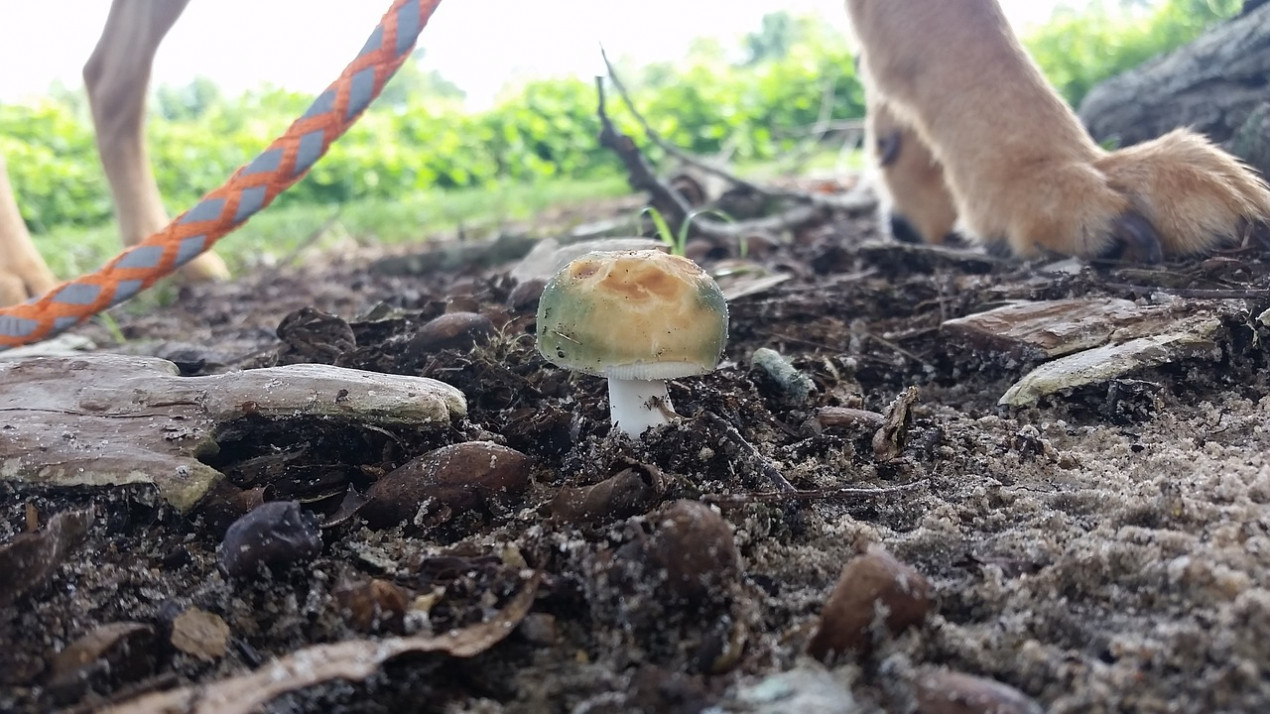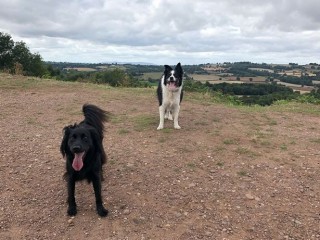
Shep and Sweep swallow poisonous fungi while out for a walk with unsuspecting owners
Can dogs eat mushrooms is a commonly asked question on Google.
But owner Tony Sutton discovered the answer the hard way while out for a walk with pets Shep and Sweep on Highgate Common in South Staffordshire.
Tony, 58, and daughter, Jo, 25, were enjoying a Sunday morning stroll with the dogs when they came across some common earthball mushrooms.
The fungi attracted the attention of Shep and Sweep who managed to eat some before Tony and Jo got to them.
Shep became ill later that morning and after googling mushrooms, the pair rushed the pets to our pet emergency clinic in Birmingham, frantic with worry.

“It was awful,” Tony told the Birmingham Mail. “We were on tenterhooks all afternoon and into the evening. I wouldn’t want anyone else to go through what we did.
“I’d warn other dog owners to be careful and look out for any fungi. They are everywhere this time of year, especially with the weather we’ve had.”
Thankfully, both dogs survived their ordeal – even though the prognosis for Shep was bleak.
Our emergency vets regularly see mushroom toxicity cases in dogs, particularly during autumn.
In most cases, dogs drool excessively and suffer vomiting and diarrhoea. If left untreated, this is often followed by collapse and severe dehydration, with the dog deteriorating into a hypothermic state.
Dave Leicester, head of clinical intelligence at Vets Now, said “Toxicity varies between mushroom species, but clinical signs can range from drooling, sickness and diarrhoea through to weakness, collapse, and organ failure.
“Some mushroom species cause neurotoxicity – leading to drunken like movements, hallucinations, seizures, coma or death.
“Survival after mushroom toxicity will depend on the species ingested, the dose and the time since ingestion, so it is vital that if your pet eats any wild mushrooms at all, you should contact your veterinary surgeon immediately, day or night, for advice.
“Mushrooms most commonly grow in damp, warm wooded areas, so if your dog is a keen scavenger make sure you keep them on a lead when you are in high-risk areas, or consider a basket muzzle so that they cannot get access.”

The Vets Now clinic in Birmingham, where Shep and Sweep received treatment, was recently rated as “outstanding” by the Royal College of Veterinary Surgeons.
It’s one of 60 Vets Now clinics and pet emergency hospitals across the UK that are open through the night, seven-days-a-week, and day and night on weekends and bank holidays, to treat any pet emergencies that may occur.
All of Vets Now’s premises have a vet and vet nurse on site at all times.
